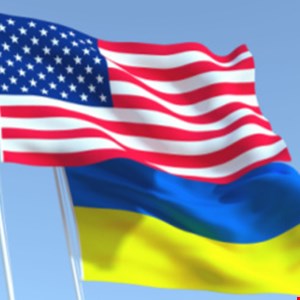- Your Ray-Ban Meta smart glasses just got two significant upgrades for free - what they do
- I found a Bluetooth tracker for Android users that works better than AirTags (and is cheaper)
- Learn with Cisco at Cisco Live 2025 in San Diego
- This Eufy robot vacuum has a built-in handheld vac - and just hit its lowest price
- I highly recommend this Lenovo laptop, and it's nearly 50% off
US Expands Cybersecurity Partnership With Ukraine

The US government’s cybersecurity agency has signed an agreement with its Ukrainian counterpart to work more closely together on cybersecurity.
The US Cybersecurity and Infrastructure Security Agency (CISA) announced yesterday that it had signed a Memorandum of Cooperation (MoC) with the Ukrainian State Service of Special Communications and Information Protection of Ukraine (SSSCIP). It will extend an existing relationship between the two agencies, said CISA.
Under the agreement, the two organizations will exchange information and best practices relating to cyber incidents. They will also share technical information about critical infrastructure security in real time, said Oleksandr Potii, deputy chairman of the SSSCIP. The MoC also authorizes the two agencies to conduct joint exercises and training sessions.
“Cyber threats cross borders and oceans,” said CISA Director Jen Easterly, calling out Russia for “cyber aggression” in what she said was an unprovoked war. “So we look forward to building on our existing relationship with SSSCIP to share information and collectively build global resilience against cyber threats.”
Earlier this month, the SSSCIP reported a surge in cyber-attacks in the second quarter of this year. In April, news emerged of a cyber-attack against the country’s national telecommunications provider Ukrtelecom using compromised employee credentials. The same month saw a hit against high-voltage electrical substations in Ukraine using a new variant of Industroyer malware, which was linked to a 2016 attack against Ukraine by Russia’s Sandworm group.
CISA has also been taking extra steps to protect organizations in the US. It launched a campaign called Shields Up in February, as it warned domestic organizations to prepare against possible Russian cyber-attacks.
The US is not the only government to help Ukraine defend itself against Russian attacks. The EU also deployed a Cyber Rapid Response Team (CRRT) to help the country in February. Led by Lithuania, the team also received support from Croatia, Poland, Estonia, Romania and the Netherlands.

